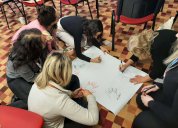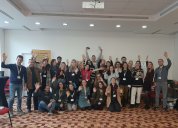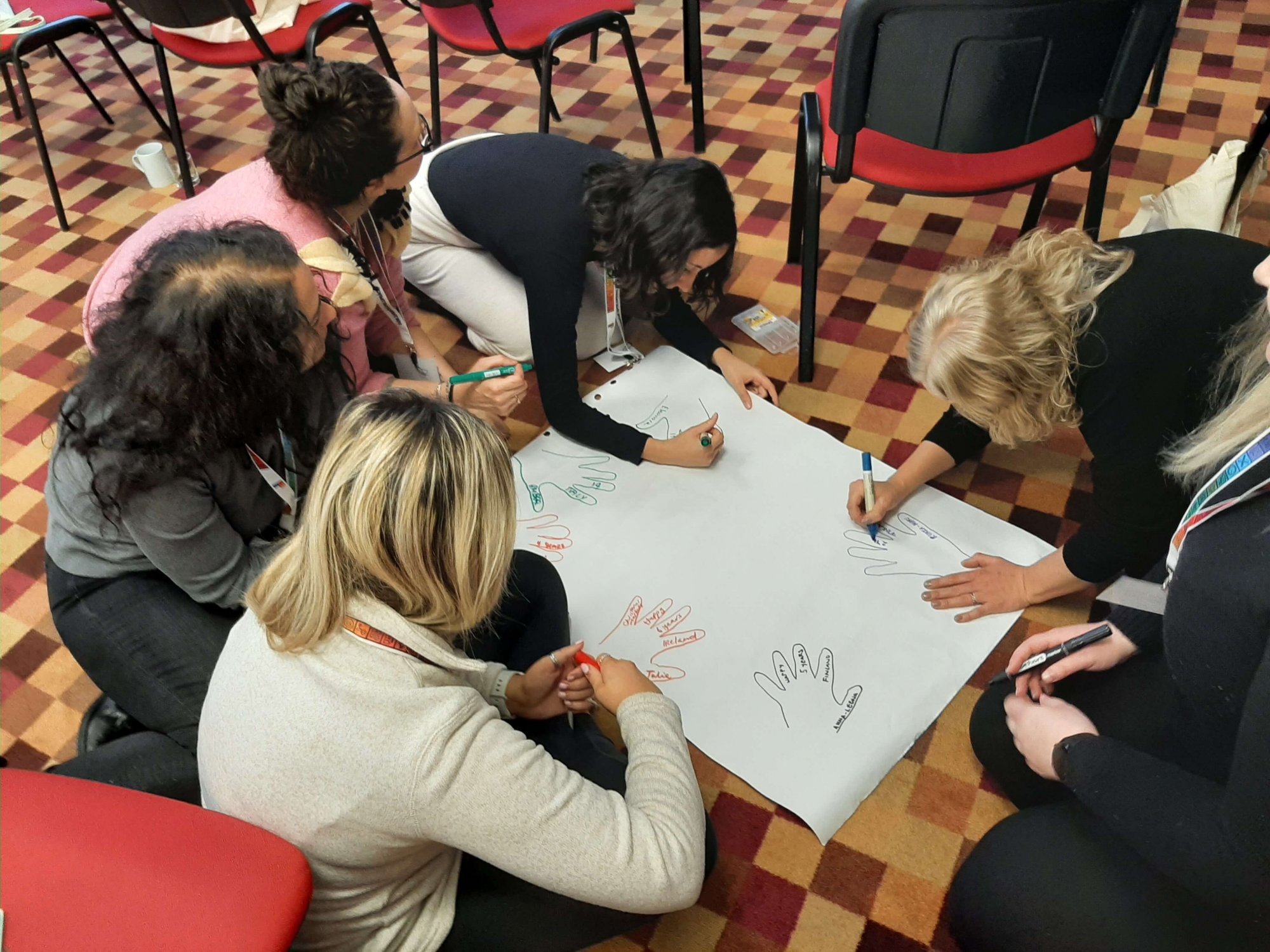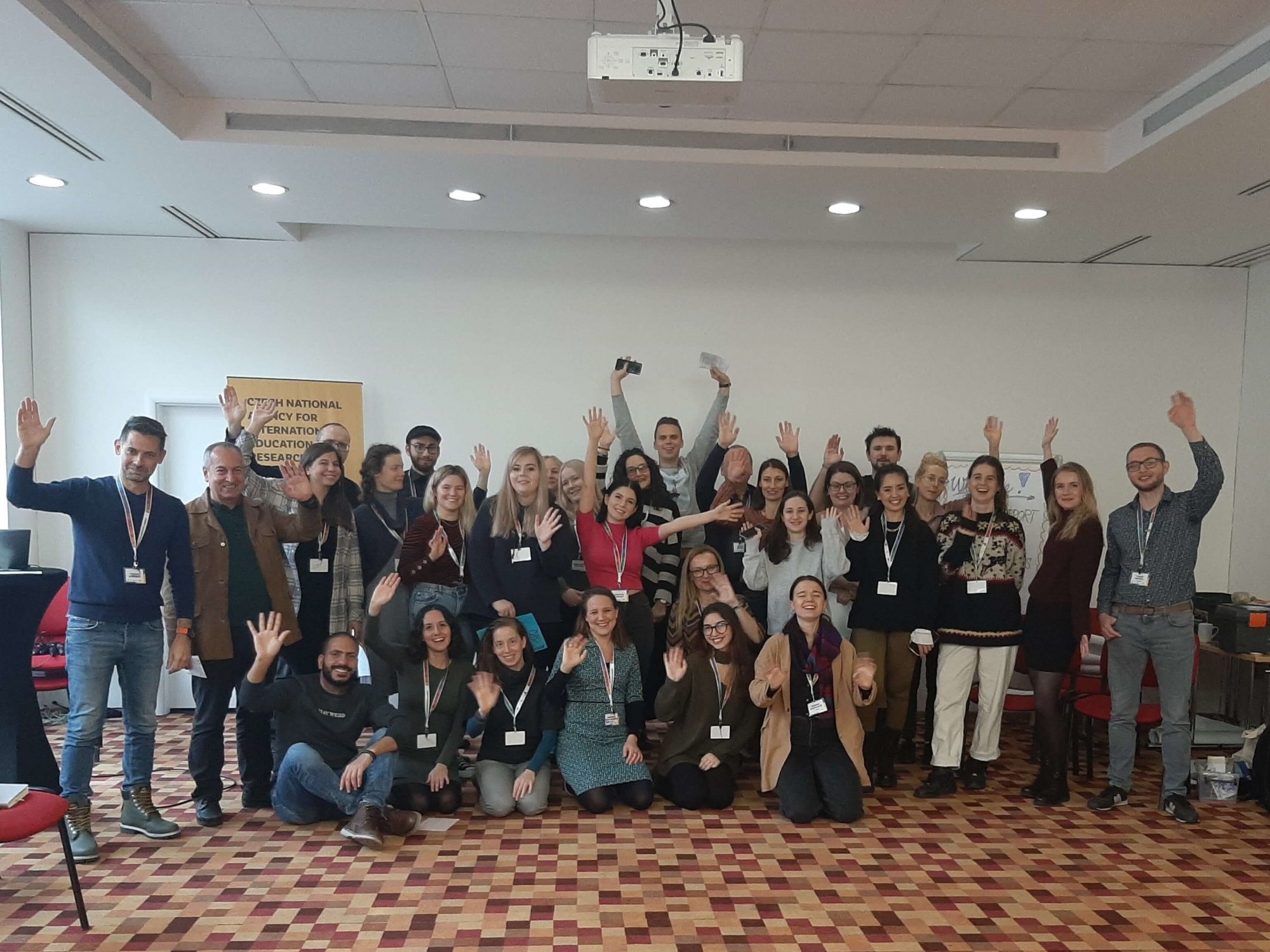How to Support and Integrate Young Refugees? Look Back at International Training for NGOs
A series of national seminars we have been organising for NGOs since the war in Ukraine preceded this meeting.
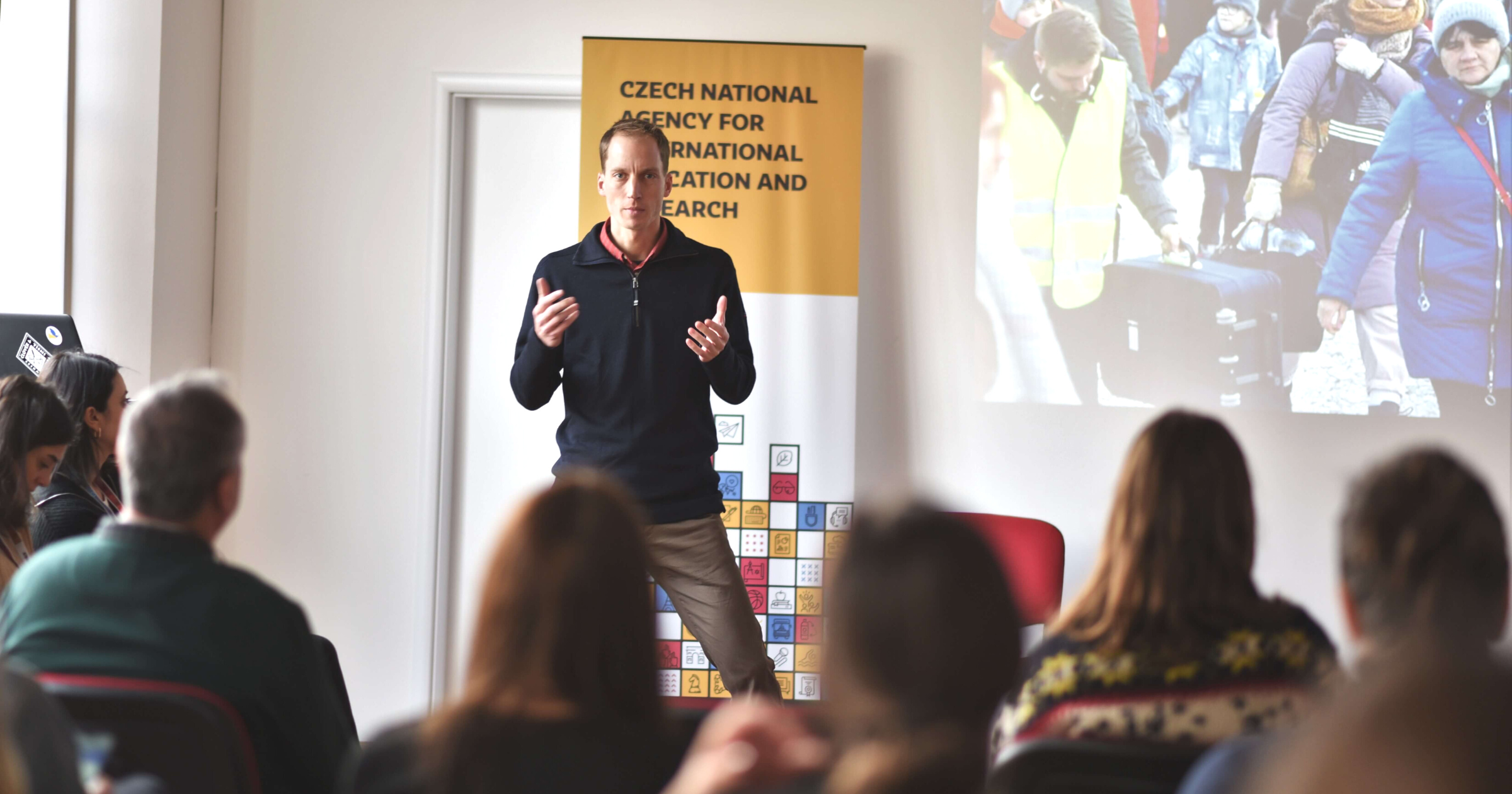
The How to Support and Integrate Young Refugees training was held in Prague from the 29th of November till the 2nd of December. As was the case when we organised five national seminars, “Supporting People on the Run”, we have again invited representatives of renowned NGOs to share their experiences and know-how with people who work with (among others) young people fleeing war or other catastrophes. Thirty-five people from nineteen countries, including the Czech Republic, accepted the invitation. For three days, Prague hosted a platform for people who work with young refugees, which enabled them to gain new knowledge and share their experiences during workshops, seminars with experts, discussions, and networking.
“We were deeply affected by Russia’s aggression in Ukraine, both professionally and personally. This is why in February, we were thinking of how to support organisations that help refugees. It led us to organise a series of training sessions with experienced people from NGOs such as People in Need or Doctors Without Borders. The feedback among organisations was very positive. We then decided to hold a multiday international meeting where representatives of organisations from all over Europe could exchange their experiences,” said Šimon Presser, Head of the Youth and Sport Division, about the reasons behind the event organisation.
Jakub Andrle from People in Need was one of the speakers. He focused on the current refugee crisis caused by the war in Ukraine and presented the Czech experience with Ukrainian refugees and the results of his organisation's work so far. He believes closer cooperation between similar organisations and states involved in the current European crisis is the most critical challenge of the near future.
“Cooperation among NGOs across Europe has been crippled by the refugee crisis since the beginning of the war. Organisations have turned inwards, and we now have no insight into their work. Simply put, there was no time for joint meetings. That is why international events where organisations from different countries can exchange information and share good practices are very important,” said Jakub Andrle.
Kateřina Šrahůlková from Doctors without Borders discussed the psychological aspect of working with refugees. The experienced psychologist and therapist, who has also completed two missions in the (at the time) largest refugee camp Moria on the island of Lesbos, emphasized not only the necessary therapeutic work in helping refugees but also the well-being of the workers themselves. They are often similarly vulnerable to their clients due to the highly demanding work.
In addition to the training, we also prepared workshops with successful project implementers who took part in the extraordinary Erasmus+ Spring Call responding to the situation in Ukraine. Representatives from the University of West Bohemia in Pilsen shared their experiences with their projects Bez tíže and Future4refugees and coordinators of the project Safety Net for Ukraine of the Children and Youth Centre “Smetanka” in Nový Bor shared theirs as well. Representatives from Scouts also came to talk about their experiences. Since the beginning of the war, Ukrainian children can join their troops, which facilitates their integration into Czech society. Participants could also learn about the possibilities the Erasmus+ and European Solidarity Corps programmes offer for working with refugees and their integration into society.
“The integration of young people fleeing, for example, war, is the most important aspect of refugee assistance. Without successful integration, conflicts between the newly arrived and local communities follow. Locals need to understand that the newly arrived did not decide to become refugees, that they were forced to such an extreme decision by dramatic circumstances. Integration is a complex process and meetings like this seminar will help us to see how other organisations in Europe approach this issue. We will gain new inspiration and energy for our future work,” said Hassan Ali from the German humanitarian organisation Plan International Deutschland e.V. summarising the biggest benefit of the international meeting.
